Mon - Thursday: 9.30am - 5.30pm - Most Saturdays - 9am - 1pm

Iridology
A Little About Iridology
Do you see eye to eye with your doctor? If he or she practises iridology, you may. Practitioners of iridology may use it to assess the tissue strength of the various organs and systems in the body. It is both the science and the art of analyzing body conditions through an examination of the iris, the coloured part of the eye. Many people consider iridology a diagnostic tool, but that is not how I employ it. Iridology does not diagnose disease. But it does help determine the condition of various tissues and organs, and more importantly, it assists with directing questions and dialogue with our clients.
A Cosmopolitan Field
Practitioners from around the world have spent the past century examining the correlation between certain iris features and human psychology and physiology. I have attended conferences on iridology in Germany, where more than 6,000 medical doctors discussed their use of iridology in its various forms.
Iridology is also widely used by herbalists and homeopathic doctors to assist them in discovering an individual’s predispositions to various health conditions. One could spend a lifetime studying the iris of the eye, and many scholars have.
Poor digestion/poor food combining.
Weakened immune system.
Vitamin deficiencies
Bowel and Liver toxicity
Dehydration
Stress
Increased cholesterol & crystal formations.
Poor circulation.
Heavy metal accumulation.
Presence of parasites / fungi / bacteria.
Iridology is a procedure of analyzing the eyes in greater detail to gather information about the terrain, the immune system and the nutritional status of the patient. There is no time farme on the length of this consultation.
Depending on the irregularities found in Iris analysis can reveal the following:
Immune System Function
Early Recognition of Cardiovascular Risk Factors
Essential Fatty Acid Deficiencies
Vitamin & Mineral Deficiencies
Digestive Disorders
Low Iron/Anaemia
Atherosclerotic Plaque
Allergies Tendencies
Hormonal Imbalances
Uric Acid Crystal & Risk for Gout
Kidney/Liver/Spleen Stress
Chemical/Heavy Metal Toxicity
Degenerative Disorders
Parasites
Dehydration
Poor Blood Circulation
Clotting Abnormalities
Bacterial Imbalances
Yeast/Fungal Tendencies
A True Holistic Tool
Iridology provides a picture of the state of the whole body at a glance. This view helps determine if one area of the body is negatively affecting another. For example, a tipped uterus could be caused by a prolapsed transverse colon which, in turn, might be caused by a weak lower back and abdominal muscles. If we knew only that the person had a tipped uterus, our suggestions for improving their health might be focused in the wrong area. To be able to see a pathway for such problems takes a thorough knowledge of the eye chart and plenty of practice.
Another form of analyzing the iris is called Rayid. While iridology focuses on the physical characteristics of the body, Rayid focuses on the emotional, mental, and even spiritual aspects of the individual. By combining iridology with other tools, a well-trained prac-titioner can paint a thorough picture of health issues facing a person.
Window on Health
Iridology charts are used by trained practitioners to aid in developing a picture of a patient’s overall state of health. Each colour, pattern, fibre, and defect in the iris is thought to have a reflex correlation with a disease manifestation or organ system malfunction. The left eye is believed to correspond with the left side of the body and the right eye to the right side.
In this chart of the iris of the right eye, developed by Dr. Bernard Jensen, a well-known American iridologist, the upper quadrant represents the higher organs while the lower organs are represented at the bottom.
In the Beginning
The use of iridology is mentioned in the writings of Hippocrates (4th century BC) and in those of the revived medical school of Salerno (11th century AD). It was rediscovered by Dr. Ignatz von P?ely of Hungary and Pastor Nils Liljequist of Switzerland, who both claim to have discovered it independently in 1857. Dr. Bernard Jensen is recognized as making iridology popular in North America, beginning in the late 1940s. Dr. Jensen was my mentor and I studied with him and worked at his Hidden Valley Health Ranch in Escondido, California, in the early 1970s.
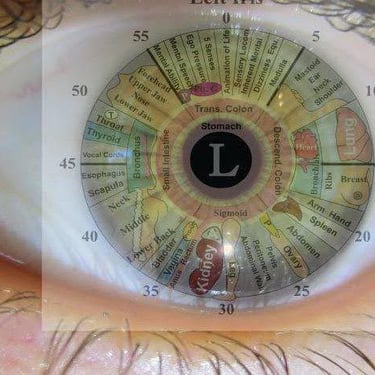
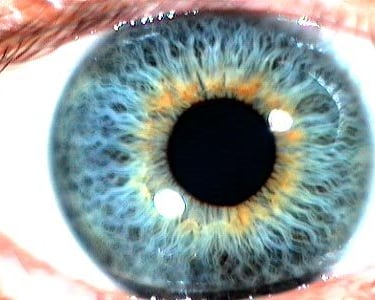
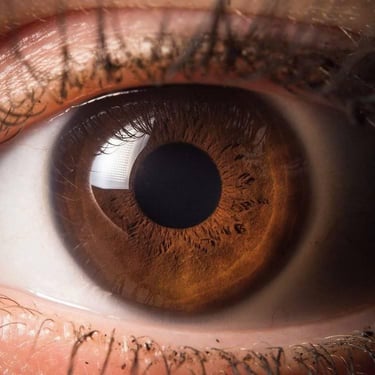
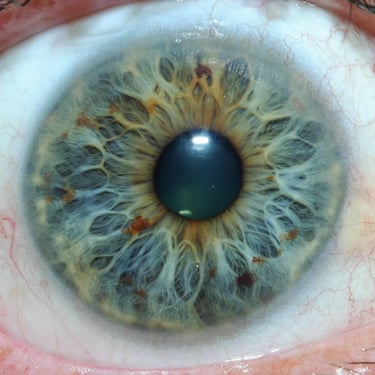

It's a Good idea to be Proactive & have Your Blood Examined
A simple way to book a consultation with Benjamin and Services available on this page
Book and Visit Benjamin in Maitland NSW
Local & International Consultations are very Popular. (Bloods Analysis not included)
All Sessions are Private and Held in the most respectful Confidence.
Benefits of Visiting Benjamin May Help with Some of the Following.
Clarity
Peace of Mind
Acceleration of your personal evolution
Healing of Chronic Fatigue Syndrome
Healing of Depression
Healing of Chronic Pain including injuries
Help with Emotional Problems including stress & anxiety
Healing of Many Chronic Diseases
Accelerated Recovery after surgery
More Life Energy in your body and mind
© 2004 - 2026. All rights reserved. Benjamin McAvoy Integrative Naturopath
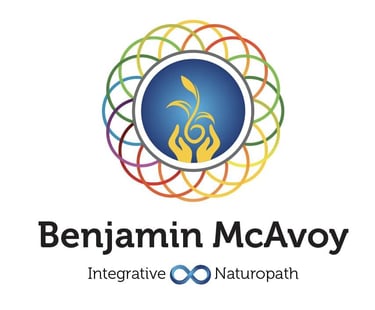

Recent Posts by Benjamin
Top 8 Uses of Low Dose Naltrexone (LDN) + Side Effects
Measles Virus Wipes Out Golf-Ball-Sized Cancer Tumor In 36 Hours
Ginger Tea: Dissolves Kidneys Stones, Cleanses Liver And Reduce Joint Pain
Weedkiller 'raises risk of non-Hodgkin lymphoma by 41%'
Unvaccinated Children's pose zero risk to anyone-Harvard immunologist
Benjamin Mcavoy
Email : Message Here (Use contact form)
Phone : 0422225151
Address : Settlers Blvd - Chisholm NSW 2322 Australia
Hours: Mon – Fri : 9.30am – 4.30pm
Day: Sat : 9am – 12pm - Alternate Saturday's
